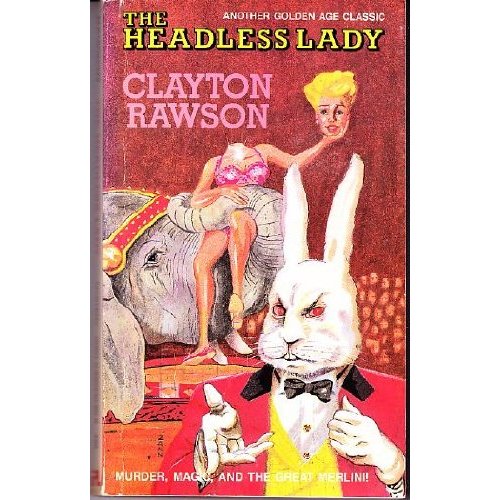A computer hacker is, as everyone knows, a computer programmer,
probably a ‘geek’, who undertakes malicious and possibly illegal activities often aimed at infiltrating, corrupting or stealing information from high security computer systems. Hence expressions such as “He’s hacked into the Pentagon”.
 |
| Hacker or cracker? Groucho Marx’s name in A Day At The Races probably gives a clue to his medical competence – Dr. Hugo Z Hackenbush. |
Here are some recent examples which I’ve spotted in newspapers and online:
4Chan, a Breeding Ground for Hackers, Crippled by Hackers
“Web forum 4Chan, which gave birth to the hacker collective Anonymous, was taken down by hackers Tuesday, the Washington Post reported.”
Skype rules out hacker attack
Skype Chief Information Officer Lars Rabbe took to the web on Wednesday to publicly explain the outage the internet calling site sustained, apparently due to a "bug" and system overloads instead of a hacker "attack."
Gawker falls victim to hackers
Over the past week several big corporations, from MasterCard and Visa to PayPal and Amazon, have come under attack from loosely co-ordinated networks of hackers operating in support of WikiLeaks under the codename of Anonymous. But over the weekend a new kind of victim fell foul of the hackers' attentions – the hyper-fashionable, super-tech-savvy Gawker websites.
Hackers crack open mobile network
Mobile calls and texts made on any GSM network can be eavesdropped upon using four cheap phones and open source software, say security researchers.
I could go on but why bother when everyone agrees that all these stories are using 'hacker' in the universally understood sense of the word?
Well, actually, not everyone does agree.
You see, a large number of non-malicious computer programmers proudly proclaim themselves to be hackers. They don’t try to get into the Pentagon or steal your passwords. They just write computer programs and like to think they do so rather well. To them, the word ‘hacker’ is a compliment. They would argue that it’s the public at large that’s got it all wrong. Hackers are the good guys. The people who get reported in newspaper stories such as the ones above are not hackers at all – they are, on the contrary, ‘crackers’.
 |
| Here’s another try. Hacker or cracker? This time Groucho is seen in Animal Crackers. But can you trust him more than Dr Hackenbush...? |
The
Jargon DB technology web site states that the primary meaning of ‘hacker’ is an entirely positive term for a computer programmer. It marks as ‘deprecated’ the definition ‘
A malicious meddler who tries to discover sensitive information by poking around’. However, a little research shows that this is not an entirely unbiased source of information. The Jargon DB is based upon
The Jargon File which is the web version of the book
The New Hacker’s Dictionary. I venture to suggest that any dictionary that places the word ‘hacker’ in its title might have a vested interest in asserting a positive meaning for that word.
Even so, it cannot be denied that there are many non-malicious computer programmers who pride themselves in being hackers. When
I interviewed Rick Ellis (the developer of the Code Igniter programming system for web-based applications) I asked him what he understood by the term.
Rick said:
“Among computer programmers, ‘hacker’ is generally a positive term, referring to a skilful programmer who solves problems for the community at large. People who do nefarious things are known as ‘crackers’. If you read How to Become a Hacker by Eric Raymond (one of the fathers of the open source movement) you'll see that there is a clear distinction between hackers and crackers. The general public tends to view the term ‘hacker’ in the negative, but most programmers draw a distinction between hackers and crackers.”
I am still not convinced. You see, I have been a programmer since the early 1980s. I’ve written programming columns for many of the best known UK computer magazines. I now run
a software programming company which makes programming software for software programmers! And I would hate it, absolutely
hate it if someone were to call me a hacker. I would, indeed, be deeply insulted. I’ve spoken to a number of other professional programmers here in Britain and they’ve expressed exactly the same opinion. We do not regard ‘hacker’ as a word with positive connotations.
My conclusions are this:
1) Non-programmers everywhere universally use ‘hacker’ to mean a malicious programmer.
2) Some programmers use ‘hacker’ to mean a clever programmer but it seems to me that those who use the term in this sense are most likely to be involved in Open Source programming (that is, the ‘free software’ movement which encourages programmers to make their code available for others to modify).
3) Some professional programmers may be happy with the word but many are not. If I were employing a programmer, I would not respond well to reading a CV in which ‘hacker’ was given as a job description.
4) There is even more scope for confusion due to the fact that some programmers (among whom I include myself) use ‘hacker’ as a term to describe not a malicious programmer but a slipshod one. If someone told me “Fred is a real hacker” I would assume they meant that Fred has a habit of doing quick and dirty fixes rather than writing careful and accurate code. In that sense, ‘hacker’ is to programming what ‘hack’ is to journalism.
Whatever your view on the word, I think it is fair to say that if you use the word ‘hacker’ in any way other than the normal everyday negative sense it is, at best, ambiguous. If you attempt to use it to someone unfamiliar with jargon used in Open Source circles, you leave yourself wide open to misinterpretation.
Oh, and yeah, I know the Groucho Marx connection is pretty tenuous. Then again, I’d rather have pictures of the Marx Brothers on this Blog than of computer programmers :-)




